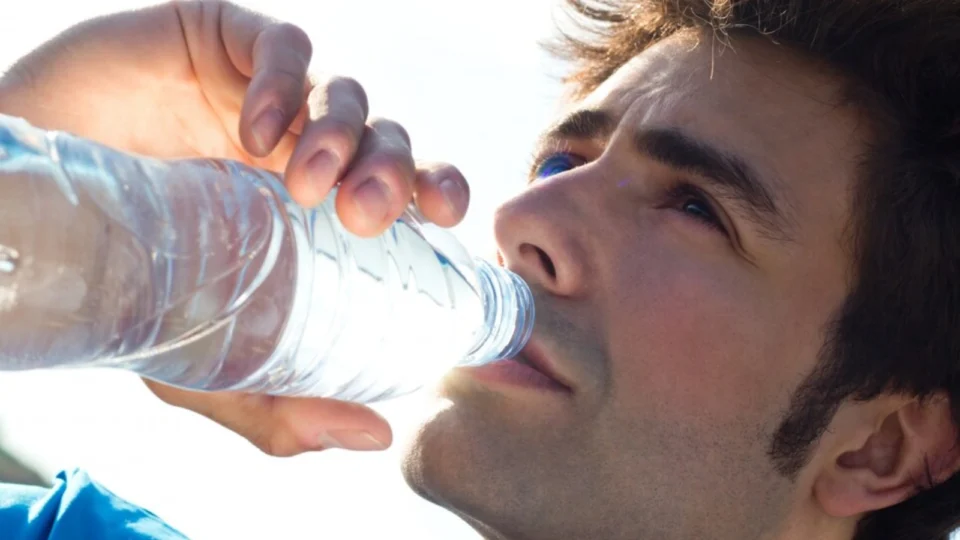When embarking on a weight loss journey, there are several elements you must consider. From finding the best exercise regimen to creating a balanced meal plan, it can feel like you need to manage a lot to achieve your goals.
One question that often arises, however, is about the role of water in weight loss: How much water should I drink to lose weight? Despite the widespread notion that drinking water can help with weight loss, there is still a lot of confusion on the subject.
Table of Contents
Does Drinking Water Burn Calories?
When it comes to weight loss, one of the primary questions people ask is whether drinking water helps burn calories. The answer is yes, to an extent. Drinking cold water can slightly boost your metabolism. When you consume cold water, your body needs to expend extra energy to bring the water up to body temperature. This process, called thermogenesis, does burn a small number of calories.
However, the number of calories burned through drinking water is not substantial enough to significantly contribute to weight loss on its own. For example, drinking an entire liter of ice-cold water may burn around 30-40 calories, but this is a relatively insignificant amount when compared to the calories burned during exercise or from reducing caloric intake.
It’s essential to view drinking water as part of a holistic approach to weight loss rather than relying on it as a major calorie-burning tool. Healthy habits such as regular physical activity and mindful eating should be prioritized.
How Does Drinking Water Help with Appetite Control?
One of the reasons water is often recommended during weight loss is its ability to help control hunger and appetite. Drinking water before meals can help you feel fuller, potentially reducing your overall caloric intake. When you consume a large glass of water, it fills up some of the space in your stomach, sending signals to your brain that you’re not as hungry. This effect can make it easier to resist overeating or indulging in unnecessary snacking.
While drinking water doesn’t completely eliminate hunger, it does help curb excessive cravings and hunger pangs. For those who struggle with emotional eating or snacking throughout the day, water can act as a tool to manage portion control.
How Does Drinking Water Affect Water Retention?
It may sound counterintuitive, but drinking more water can help reduce water retention. Water retention occurs when your body holds on to excess fluid due to various factors, including high salt intake or hormonal fluctuations. When the body feels dehydrated, it holds on to water as a survival mechanism. In contrast, when you drink plenty of water, your kidneys flush out excess sodium, which helps to prevent the buildup of fluid in the tissues.
This is especially beneficial for individuals who experience bloating and swelling. Drinking water regularly can help regulate the balance of fluids in your body, reduce puffiness, and support the normal function of your kidneys.
How Much Water Should I Drink to Lose Weight?
Now that we understand the benefits of water for weight loss, the next question is: How much water should I drink to lose weight? While the popular recommendation of “eight glasses of water a day” serves as a convenient guideline, it is not necessarily the most accurate or personalized advice. Water needs vary depending on several factors, including your age, sex, activity level, and climate.
The National Academies of Sciences, Engineering, and Medicine has set more specific guidelines for daily water intake. They recommend the following:
- For men: Approximately 3.7 liters (125 ounces) of total water intake from beverages and food.
- For women: Approximately 2.7 liters (91 ounces) of total water intake from beverages and food.
This includes all fluids consumed, not just plain water. Foods such as fruits and vegetables, as well as beverages like coffee and tea, also contribute to your overall hydration. However, for weight loss purposes, it’s often recommended to drink a bit more than the average person to support your body’s needs during exercise and to increase the appetite-curbing benefits.
Factors Affecting Your Water Needs
- Exercise: If you’re active and engaging in exercise, your water needs will increase. When you sweat, your body loses fluids that need to be replenished to maintain proper hydration levels.
- Climate: Hot or humid environments may cause you to sweat more, which leads to an increase in your hydration requirements.
- Health Conditions: Certain health conditions, like kidney disease, may affect your water intake recommendations, and individuals with such conditions should follow medical advice tailored to their needs.
Related:
Drinking More Coffee in 2025 Could Be Your Healthiest Resolution Yet
Surprising Health Benefits of Spending Time Outdoors This Winter
